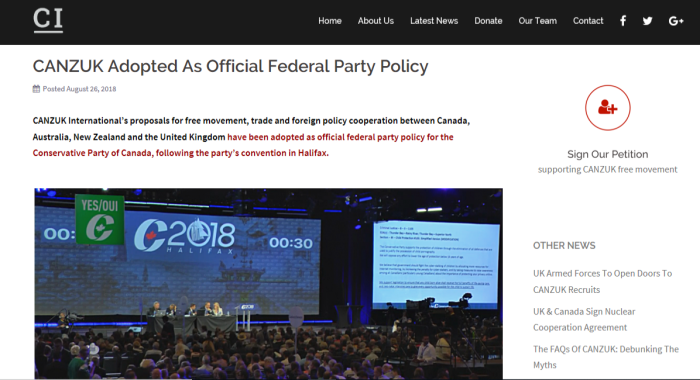https://www.youtube.com/watch?v=CgNChZrWNmI
(Putin: “We are a multi-ethnic country, but one civilization.”)

(Samantha Brick, possibly the UK’s dumbest feminist)
1. Previous Solutions Offered
A response that frequently comes up is for people to ask what to do about it. Instead of just constantly pointing out what is wrong, some constructive suggestions should be offered. This section contains a list of proposals that, if implemented, would benefit society. While the details may be difficult to implement, at least they are a starting point.
2. Get Rid Of Multiculturalism
Multiculturalism does not work.
It never has, and never will.
Seehere, the Multiculturalism Act.
”Multiculturalism Policy of Canada
Marginal note:Multiculturalism policy
3 (1) It is hereby declared to be the policy of the Government of Canada to
(a) recognize and promote the understanding that multiculturalism reflects the cultural and racial diversity of Canadian society and acknowledges the freedom of all members of Canadian society to preserve, enhance and share their cultural heritage;
(b) recognize and promote the understanding that multiculturalism is a fundamental characteristic of the Canadian heritage and identity and that it provides an invaluable resource in the shaping of Canada’s future;
(c) promote the full and equitable participation of individuals and communities of all origins in the continuing evolution and shaping of all aspects of Canadian society and assist them in the elimination of any barrier to that participation;
(d) recognize the existence of communities whose members share a common origin and their historic contribution to Canadian society, and enhance their development;
(e) ensure that all individuals receive equal treatment and equal protection under the law, while respecting and valuing their diversity;
(f) encourage and assist the social, cultural, economic and political institutions of Canada to be both respectful and inclusive of Canada’s multicultural character;
(g) promote the understanding and creativity that arise from the interaction between individuals and communities of different origins;
(h) foster the recognition and appreciation of the diverse cultures of Canadian society and promote the reflection and the evolving expressions of those cultures;
(i) preserve and enhance the use of languages other than English and French, while strengthening the status and use of the official languages of Canada; and
(j) advance multiculturalism throughout Canada in harmony with the national commitment to the official languages of Canada.”
What this act does it promote, in fact legislate, that there are to be multiple societies within Canada. People are not expected to adopt a Canadian identity, but instead, Canada is expected to accept and promote other identities. Nonsense.
(a) recognize and promote the understanding that multiculturalism reflects the cultural and racial diversity of Canadian society and acknowledges the freedom of all members of Canadian society to preserve, enhance and share their cultural heritage;
That is right, we don’t want to have any sort of ”national” heritage. Rather, apparently we prefer to
have the country made up of individual cultural heritages. Not that it will lead to balkanization or anything.
(b) recognize and promote the understanding that multiculturalism is a fundamental characteristic of the Canadian heritage and identity and that it provides an invaluable resource in the shaping of Canada’s future;
Again, reinforcing the idea that Canada is to have no unique identity, but to be a ”stew” of other identities.
(i) preserve and enhance the use of languages other than English and French, while strengthening the status and use of the official languages of Canada; and
This statement actually contradicts itself. If you are preserving and enhancing languages other than English and French, then logically, they are beginning to replace English and French.
(j) advance multiculturalism throughout Canada in harmony with the national commitment to the official languages of Canada.
This statement also contradicts itself. If you are advancing other cultures (whose main languages are not English or French), then you are promoting those other languages at the expense of English and French. Further, multiculturalism does not lead to harmony, but to division and segregation.
(h) foster the recognition and appreciation of the diverse cultures of Canadian society and promote the reflection and the evolving expressions of those cultures;
(A) If a culture views women as 2nd class citizens? Do we embrace it?
(B) If a culture tolerates honour killings, do we respect it?
(C) If a culture traditionalises animal cruelty, do we celebrate it?
(D) If a culture views child marriages as tradition, do we allow it?
(E) If a culture allows cousin marriages/inbreeding, keeps the family ties, do we accept it?
(F) If a culture promotes killing of gays, do we celebrate it?
(G) if a culture calls for violence towards outsiders, do we turn the other cheek?
Under the multiculturalism act, yes, differences should be celebrated.
Interestingly, Quebec takes a different stand. They protect their French language, and they protect their French culture. However, multiculturalism and billigualism are forced on the rest of Canada, by Quebec, under a constitution Quebec never signed.
Further, this obsession with having no cohesive or unifying identity is also codified in the Canadian Charter.
Multicultural heritage
27. This Charter shall be interpreted in a manner consistent with the preservation and enhancement of the multicultural heritage of Canadians.
This article, was originally going to be included, but now is a separate piece. An extreme example of how promoting culture really misses the big picture.
This is not to say that people of different races cannot live together. That is possible. However, different cultures cannot co-exist. Vastly different social structures in a given area either leads to parallel societies, or it leads to segregation and balkanization. Both are harmful to a nation. Here is an idea brought up in earlier articles.
CIVIC NATIONALISM: People joined by abstract ideas such as laws, values, freedom, equality, and justice.
ETHNO NATIONALISM: People joined by identity such as race, ethnicity, culture, tradition, customs, spoken/written language, heritage, religion, spirituality.
Having common values and laws (civic nationalism) is important, but alone it is insufficient. There has to be something that actually unites the people. While this is not a call for any racial supremacy, there has to be some commonality (ethno nationalism) to make the society cohesive. While people understandably have different standards, here is one
(a) People in a society need to speak a common language.
(b) People in a society need to have a common culture.
If we have these 2 items, a society will function, although, the more devout would argue that there would need to be a third unifier:
(c) People in a society need to have a common faith.
Hate Crime Laws Divide By Identity
This will be the topic of a separate article. But here are the hate crime laws on the books in Canada.
Public incitement of hatred
319 (1) Every one who, by communicating statements in any public place, incites hatred against any identifiable group where such incitement is likely to lead to a breach of the peace is guilty of
(a) an indictable offence and is liable to imprisonment for a term not exceeding two years; or
(b) an offence punishable on summary conviction.
Marginal note:Wilful promotion of hatred
(2) Every one who, by communicating statements, other than in private conversation, wilfully promotes hatred against any identifiable group is guilty of
(a) an indictable offence and is liable to imprisonment for a term not exceeding two years; or
(b) an offence punishable on summary conviction.
Marginal note:Defences
(3) No person shall be convicted of an offence under subsection (2)
(a) if he establishes that the statements communicated were true;
(b) if, in good faith, the person expressed or attempted to establish by an argument an opinion on a religious subject or an opinion based on a belief in a religious text;
(c) if the statements were relevant to any subject of public interest, the discussion of which was for the public benefit, and if on reasonable grounds he believed them to be true; or
(d) if, in good faith, he intended to point out, for the purpose of removal, matters producing or tending to produce feelings of hatred toward an identifiable group in Canada.
While this seems harmless enough, will legislation such as M-103 (Islamic Blasphemy) or C-16 (Compelled Speech for Gender Pronouns) do an end run around these terms?
Also, a quick glance at Provincial Human Rights Code (such as British Columbia, shows that it is all about dividing by identity.
3. Feminism Is Destructive
Also, one can make a very strong case that FEMINISM is also harmful to society. Of course, we are decades past the point where it is about fighting for equality (1st wave), and we are past the point of so-called ”reproductive equality” (2nd wave).
It is no longer about equality with men, but rather, supremacy over men, (3rd wave). Feminism no longer subscribes to be about an sort of cohesion, but that of privilege and domination.
This ”equality of outcome”, or affirmative action, is even enshrined in Part 15(2) of the Canadian Charter
Equality Rights
Marginal note:Equality before and under law and equal protection and benefit of law
15. (1) Every individual is equal before and under the law and has the right to the equal protection and equal benefit of the law without discrimination and, in particular, without discrimination based on race, national or ethnic origin, colour, religion, sex, age or mental or physical disability.
Marginal note:Affirmative action programs
(2) Subsection (1) does not preclude any law, program or activity that has as its object the amelioration of conditions of disadvantaged individuals or groups including those that are disadvantaged because of race, national or ethnic origin, colour, religion, sex, age or mental or physical disability.
In short feminism allows women to demand to be on a level playing field with men, but still demand special treatment if the outcomes are not what they want.
Here is an extreme case of feminist thinking gone wrong:
The Article Samantha Brick, April 7, 2009
Normally the Daily Mail is not the best source, but this article was too great to pass up. Here are some quotes (in bold) and comments below:
“Over in one corner sat Alice, a strong-minded 27-year-old who always said what she thought, regardless of how much it might hurt someone else. In the other corner was Sarah, a thirtysomething high-flier who would stand up for herself momentarily – then burst into tears and run for the ladies.
Their simmering fight lasted hours, egged on by spectators taking sides and fuelling the anger. Sometimes other girls would join in, either heckling aggressively or huddling defensively in the toilets. It might sound like a scene from a tawdry reality show such as Big Brother, but the truth is a little more prosaic: it was just a normal morning in my office.
The venomous women were supposedly the talented employees I had headhunted to achieve my utopian dream – a female- only company with happy, harmonious workers benefiting from an absence of men.”
Admittedly this intro is catchy, but one would get the impression that Samantha Brick had absolutely no clue about how women interact in groups. Did she not grow up with them?
“It was an idealistic vision swiftly shattered by the nightmare reality: constant bitchiness, surging hormones, unchecked emotion, attention-seeking and fashion rivalry so fierce it tore my staff apart.”
The author will go on to elaborate at great length on these details. But the obvious question remains: why keep these women employed if they are this destructive? Remember, you did mortgage your home to get this building going.
“Working in TV is notoriously difficult for women. There is a powerful old boys’ network, robust glass ceiling and the majority of bosses are misogynistic males.
Gradually, what had started out as a daydream – wouldn’t it be great if there were no men where I worked? – turned into an exciting concept. I decided to create the first all-female production company where smart, intelligent, career-orientated women could work harmoniously, free from the bravado of the opposite sex.”
Again, from reading this, you would think that Samantha had absolutely no clue how women interact in groups. She also seems to buy the notion that men only succeed because they are men (sexism and patriarchy). Perhaps men on average achieve more because they don’t create drama, complete with: constant bitchiness; surging hormones; unchecked emotion; attention-seeking; and fashion rivalry. Am just quoting the author’s description here.
“In hindsight, I should have learned the lessons of my past – at my mixed secondary school I was bullied by a gang of nasty, name-calling girls, so I knew only too well how nasty groups of women could become.”
Now we get to the heart of it. Samantha Brick knew full well how women can be in groups, then decided to launch this all-female project anyway, using her mortgaged home as collateral.
“I hired a team of seven staff and set up an office in Richmond upon Thames, Surrey. While the women I interviewed claimed to be enthused by the idea, they still insisted on high salaries. Fair enough, I thought at the time – they are professionals, and I knew most of them were talented and conscientious because I’d worked with them before.
.
But within a week, two cliques had developed: those who had worked together before and those who were producing ‘new ideas’.
.
Most days would bring a pointed moment when some people were invited out for lunch or a coffee break – and some weren’t. Nothing explicit was ever said; the cutting rejection was obvious enough.
Even when we all went to the pub after work, strict divisions remained, made clear according to who sat where around the table and who would be civil – or not – to whom.
Fashion was a great divider, though in this battlefield everyone was on their own. Hideously stereotypical and shallow as it sounds, clothes were a huge source of catty comments, from sly remarks about people looking over-dressed to the merits of their fake tan application.
I always felt sorry for anyone who naively showed off a new purchase in the office, because everyone would coo appreciatively to their face – then harshly criticise them as soon as they were out of earshot. This happened without exception.”
Someone less idealistic who had their personal wealth (and home) tied up in this venture would have started looking to replace these women after a week or two. It is not worth dragging down a company, and these women are clearly too petty to be productive.
“My deputy, Sarah, the general manager, first showed how much style mattered when she advertised for an office assistant and refused to hire the best-qualified girl because she could not distinguish Missoni from Marc Jacobs. This girl would have been making tea and running errands. But I didn’t challenge the decision not to hire her because I had a policy of picking my battles carefully.”
Had that been me, Sarah would have been let go that day. A manager who refuses to hire good talent for such a trivial reason is not someone who should be a manager. However, Samantha doesn’t see that she shows the same flaw: not dismissing a poor manager because she wants to ”pick her battles”.
“Employees considered it acceptable to take time off for beauty treatments – and not out of their holiday allowance. One girl regularly came in late because she was getting her hair coloured, and when I mentioned this she blew up in outrage. Though at least she had a reason; most just turned up late regardless, and huffed ‘That’s the time my train gets in’ if I pointed at the clock.
In hindsight, I can see I should have been more strict. My idealism was my downfall because I tried to see the best in people – I was convinced they would behave as they were treated, so I treated everyone kindly.”
At least Samantha is taking some responsibility for allowing this to happen. However, a half way decent boss would have let them go a long time ago.
“Though Sarah, my general manager, was present, she refused to get involved because she didn’t want to be the ‘bad cop’.
Despite being in charge, she was scared at the prospect of being bitched about – it was as though, in a women-only environment, staff were unable to keep their defined roles.
Soon, arguments became a daily occurrence. It would start with snide comments between two people then, as others joined in, emotion and anger would grow until an eruption – shouting, screaming, swearing – which always left someone in tears.
Then the friends of the woman who was upset would follow her to console her, leaving one group in the office and another group in the ladies. Both would then bitch unreservedly about each other – and do absolutely no work.
It reached the point that I even wrote a handbook for staff on how to be nice to each other. The advice centred on being respectful to everyone and treating people equally – taking phone messages properly whether the call was for me or a junior.”
Again, Sarah should have been let go. She is clearly not management material.
Samantha needs to own up for this. If this is becoming a daily pattern, and no work is getting done, I would be getting new staff (and a new manager) lined up right away. Remember, you did re-mortgage your house for this,
“But the biggest force wasn’t personality type, it was hormones. When one woman started having IVF, she unleashed her rage without warning and without apology.
At ‘that time of the month’ – which in an office staffed only by women meant someone was always at that point – any bad mood was swiftly passed on to the rest of team as if by osmosis.”
Still waiting for some justification as to why these women haven’t all been replaced. For all the whining about how men are only on top because of discrimination, Ms. Brick provides example after example of how an all-women workforce causes nothing but problems. These issues do not exist in male-majority places. Hence, there may be a valid reason that there are more men in management.
While skipped over in this review for expediency, the actual article does provide many more examples of the problems caused by this all-female staff. And remember, the author tells us that they were “very accomplished” women.
“In this climate, I didn’t dare employ any men because of the distraction and – even worse! – catfights they created. I hate how much that sounds like stereotyping, but I’m afraid it’s what I found to be true.
And while I stand by my initial reason for excluding male employees – because they have an easy ride in TV – if I were to do it again, I’d definitely employ men. In fact, I’d probably employ only men.”
And this takes us to the final blow: Samantha Brick has learned absolutely nothing from the experience. She “stands by her reason” for creating an all-women workforce, because men have “an easy ride”. It had nothing to do with the 1/ constant bitchiness; 2/ surging hormones; 3/ unchecked emotion; 4/ attention-seeking and 5/ fashion rivalry so fierce it tore her staff apart. These are the author’s own observations.
It never seems to dawn on her that perhaps men are having an easier time because these issues don’t come up, or at least nowhere near as often.
When Ms. Brick refers to this group as “accomplished women” I really have to wonder how detached from reality she is. They seem like 14 year old children.
4. Final Thoughts
Though the article contained several topics, there is one theme that was hopefully clear: unity. We need a society that is strong and cohesive, not something that divides along gender, linguistic, cultural, or other grounds. What we need, as Canadians, is a national identity. Not some mash up of ”whatever” or ”diversity is our strength”, but something that is unabashedly ours.
Multiculturalism, feminism, (and separate hate crime laws), do nothing to bring us together as a society, but rather make the divide bigger.
The video of Vladmir Putin and the Samantha Brick article were added to contrast two very different ideas of unity.
(1) While the Brick case is extreme: it does help to illustrate the point that merit should be the driving factor in employment, school, or any other competition. Affirmative action, quotas, or accepting everything “as diversity” are really bad ideas.
(2) Vladmir Putin, by comparison, comes across as very reasonable and realistic in this video. Someone who actually puts country ahead of such pettiness.
Like this:
Like Loading...









